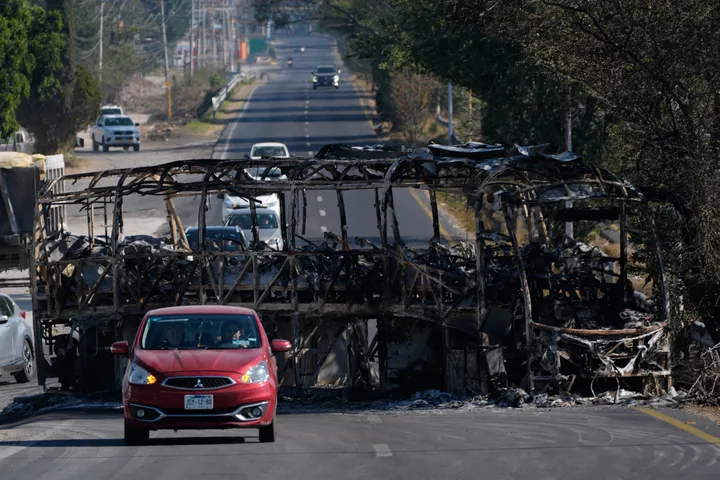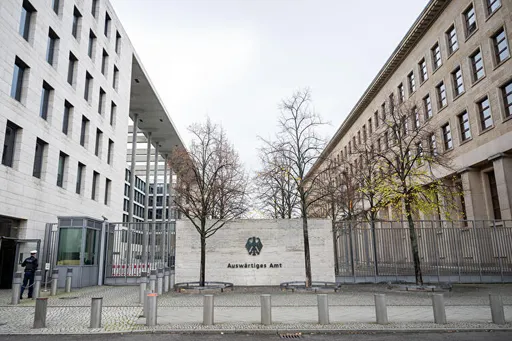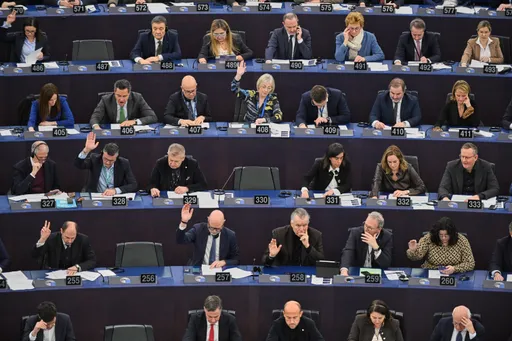When Turkey’s President Recep Tayyip Erdogan participated in the groundbreaking ceremony of St Ephrem Syriac Orthodox Church in Istanbul on August 3, it was seen as a significant event in the history of the Turkish Republic.
“People say this is the first church to be constructed during the Republican period. What they say is correct,” said Sait Susin, the President of Istanbul Syriac Orthodox Church Foundation, which has been instrumental in the development of the project.
While the construction of this project will finish in two years, Susin said restoration efforts to rebuild Syriac churches across Turkey are also underway.
He added that Syriac religious spaces and needs were largely ignored by previous Turkish governments and it was with the AK Party coming to power that institutional support for minority communities has become visible.
“The new Syriac church under construction is a church to be built in accordance with Turkish regulations. That’s why the phrase ‘the first church of the Republican period’ is used,” Susin told TRT World.
For Susin, a 72-year-old Syriac-Turkish businessman, the renovation of religious spaces of minorities and stone-laying of St Ephrem Syriac Orthodox Church in Istanbul became a reality with the consistent support of the AK Party leader Erdogan.
“If our president’s will were not there, there would be a lot of difficulty to build this church, I think,” said Susin, who has been the head of the foundation for the last seven years and its board member for 17 years.
Approximately 25,000 Syriacs currently live in Turkey and the total population around the world is nearly six million, according to Susin. Syriacs from Western countries have started to return to Turkey in ones and twos. The small but significant homecoming is driven by the idea of "saving their old culture".
Turkey is also home to 200,000 Christians and Jews, according to Moris Levi, who's a leading representative of Minority Community Foundations and the President of the Quincentennial Foundation, a Turkish-Jewish organisation devoted to celebrating their arrival in the erstwhile Ottoman Turkey.
The origin of Syriacs can be traced to the Middle East. Susin says they belong to the ancient Arameans heritage. In ancient times, Arameans had dominated Mesopotamia, the ‘Cradle of Civilisation’, between the Euphrates and Tigris rivers in the present-day Middle East for centuries. One of the oldest surviving Christian communities in the world, Syriacs speak Aramaic, an ancient language, and their scriptures have long been written in the letters of its ancient alphabet.
A large portion of Syriacs, around 17,000, are living in Istanbul. On different occasions after the foundation of the Turkish Republic, they migrated from eastern Turkey to western parts of the country. They have long desired for a new church so that they can host the rising number of worshippers and ease the burden on the one built in 1844 in the city's Tarlabasi neighbourhood.
While there were 20-30 Syriac families living in Istanbul in early Republican times, now their number has hit nearly 20,000, so they “have an urgent need for a new church”, according to Susin.
Another first in Turkish history
The groundbreaking ceremony not only marked the unusual character of building a new church in Turkey but also distinguished the event from others with the exceptional participation of a Turkish president.
Since the beginning of the Ottoman Empire, the predecessor state of Turkey, non-Muslim communities, from different Christian denominations to Jews, had had their worshipping places across imperial territories.
But there are no records which indicate that an Ottoman sultan had ever participated in a ceremony marking the construction of a church or synagogue, according to Toros Alcan, one of the most prominent members of Turkish-Armenian community, who was also previously the leading representative of Turkey’s Minority Community Foundations.
During the Republican period, neither a Turkish president nor a prime minister has participated in a ceremony equivalent to the one in Istanbul where Erdogan came as the chief guest, Alcan said.
As a result, “it’s quite symbolic” for Turkey’s political history that a president alongside with the prominent members of his cabinet was there to support the building of a church, Alcan explained.
“With the president’s personal participation of the groundbreaking ceremony of a church, Turkey sends a symbolic message to the whole world and also its own people,” Alcan told TRT World.
Other minority representatives in Turkey agree with Alcan.
“It’s very important message to me. The president has always emphasised that minority people are constituent elements [in Turkey]. It’s all clear that freedom of worship is an indispensable part of minority life,” Levi said.
“His personal presence in the groundbreaking ceremony confirms his stance [and conviction], being a model to the world,” Levi viewed.
Hristo Kopana, a Christian Bulgarian minority representative, who is also a board member of the Bulgarian Exarchate Foundation in Istanbul, backs Alcan’s argument.
“This [groundbreaking ceremony] signifies one of the most important developments in Turkish state policies, in my opinion. It’s quite a positive development,” Kopana said.
Erdogan’s participation in the ceremony is also “an important encouraging event”, according to Kopana.
“I don’t remember any new Greek church to be constructed in Turkey during the Republican period. As a result, it’s an important development,” said Andon Pariziyanos, Istanbul’s Greek community leader.
Pariziyanos also emphasised the location of the church, Yesilkoy, one of the richest neighbourhoods, where most of Istanbul’s Syriacs live.
“The construction of the church is both important and joyful not only for Syriacs but also for all Christians,” he told TRT World.
Other improvements
Since the AK Party came to power in 2002, some important aspects of minority rights have definitely improved under Erdogan’s leadership, Susin said.
Between 2003 and 2014, more than a thousand “unidentified” non-Muslim properties, which were either confiscated by the state in the past or unused by non-Muslims for different reasons, have been reinstated to minority community foundations, according to legal experts.
Turkey has also rewritten its regulations concerning foundations or waqfs in the old Ottoman language, enacting the new law of foundations in 2007 as part of EU adaptation policies, paving the way for improving minority rights.
Susin says the AK Party governments help improve minority rights much because Erdogan’s party has “a particular will [and a concrete policy] for all faith groups to practice their beliefs as they wish.”
“Truly, not only on this new church issue but also on other issues, minorities in a general sense and Syriacs in a particular sense have seen much support from [AK Party governments],” he added.
Susin is not alone on his judgment on how the AK Party has tried to improve minority standards in Turkey.
“A particular dialogue began in 2003 and 2004,” Pariziyanos said. It means minorities can express themselves better to Turkish authorities, easing restoration efforts. “We do not have any problems [concerning restorations] as we used to have,” he added.
During the AK Party governments, good faith shown by both sides has been able to resolve some mistrust issues going back to the beginning of the founding of the Turkish Republic, Kopana said.
“In the last 10 and 15 years, changing laws has quite positively affected [minority life in Turkey],” Kopana told TRT World, referring to Turkish reforms toward democratisation.
He also thinks that under current legal framework minorities will be able to express themselves much better on other issues in the near future because of the ongoing process led by the AK Party.
Bulgarian ‘Iron Church’ restoration
Kopana also evoked Turkey’s restoration efforts with regard to Istanbul’s famed Iron Church, which was opened on January 7, 2018, costing nearly $3 million, most of which was paid by the Istanbul metropolitan municipality and other state institutions.
The Iron Church, which is located in the Golden Horn along the famous Bosphorus, is one of the world’s precious religious artefacts built entirely from iron in the 19th Century.
After seven years of work, the Iron Church was able to be restored because the new Turkish law of foundations eased the way for restoration efforts, helping minorities rebuild their worshipping places across the country, Kopana said.
“The Turkish state itself from its President Recep Tayyip Erdogan to its ministries and Istanbul municipality has given an enormous financial support to the project. In addition to that, they also truly gave moral support to finish its restoration as soon as possible,” Kopana said.
Like the groundbreaking ceremony of the Syriac church, Erdogan also came to the reopening ceremony of the church along with the Bulgarian Prime Minister Boyko Borisov.
“To see the Turkish President there was an honorable thing for us. This was another first realised [in Turkey]. We are thankful to him for his support to us,” Kopana said.























